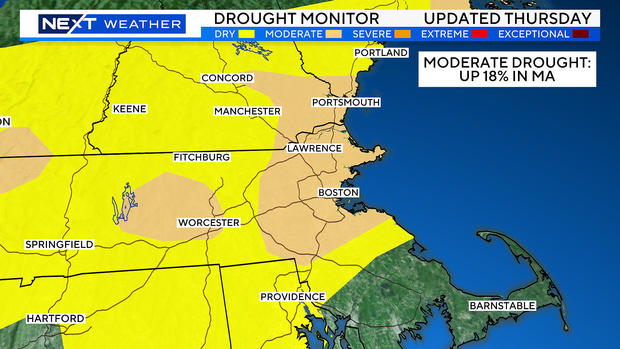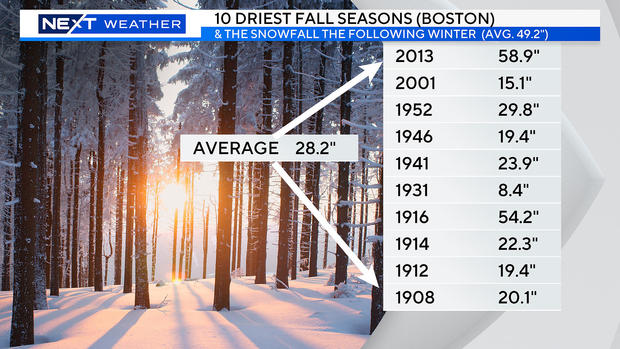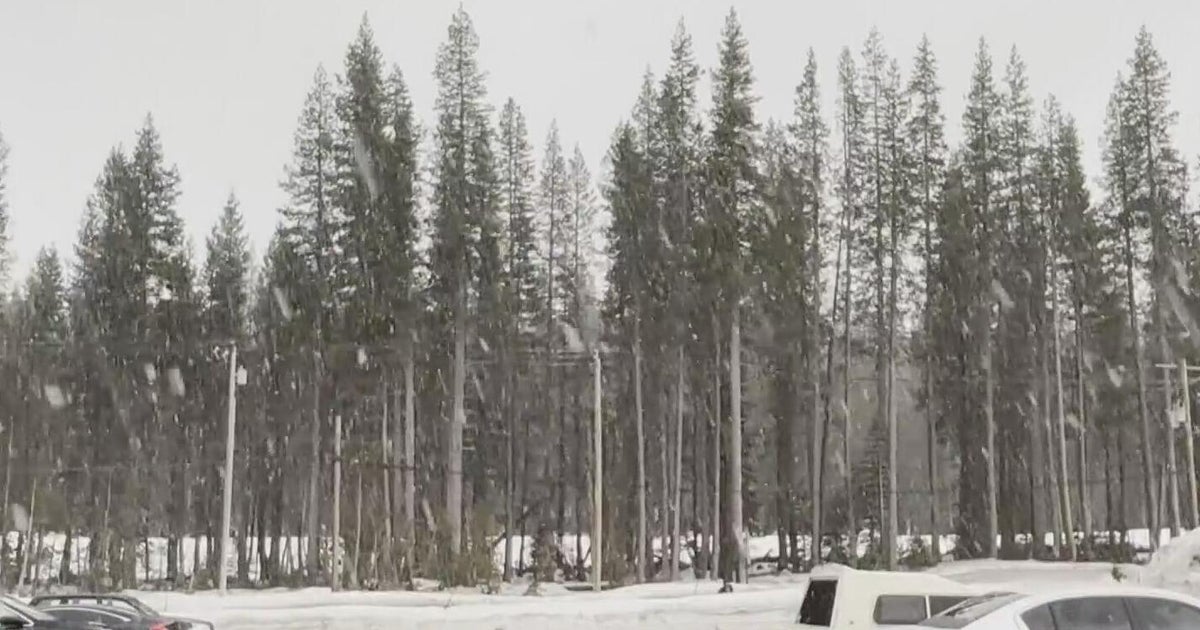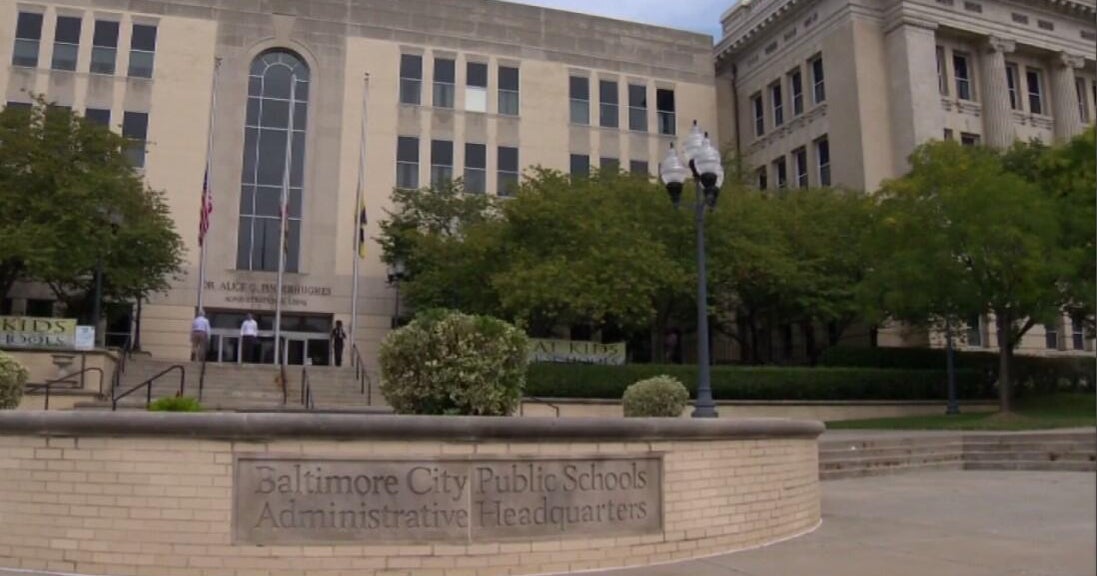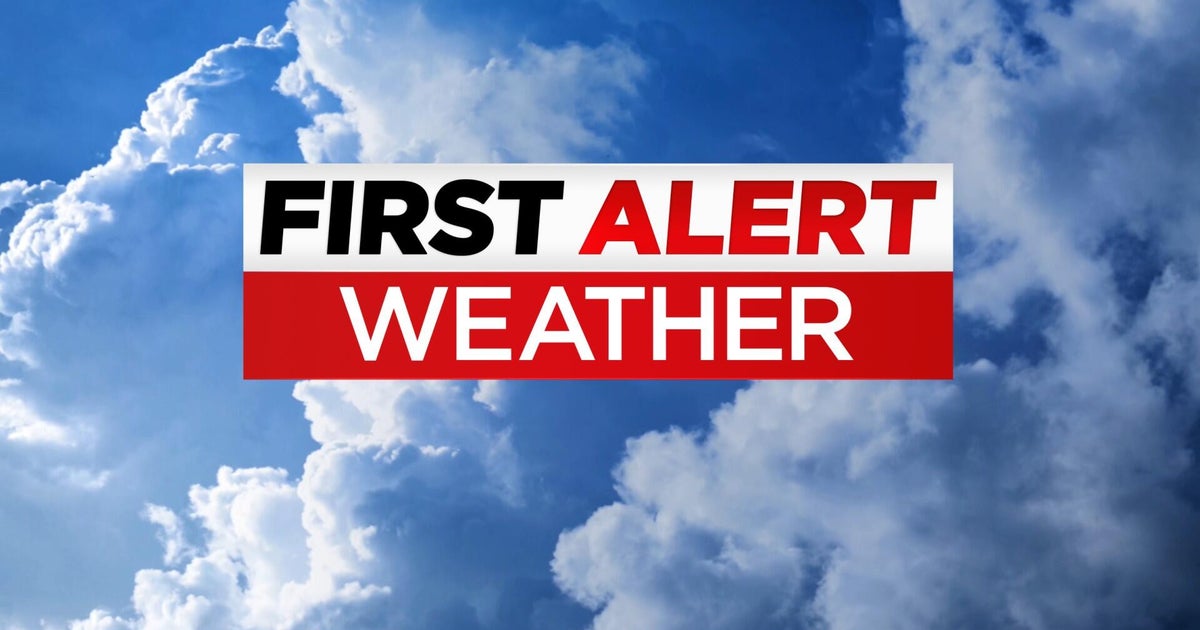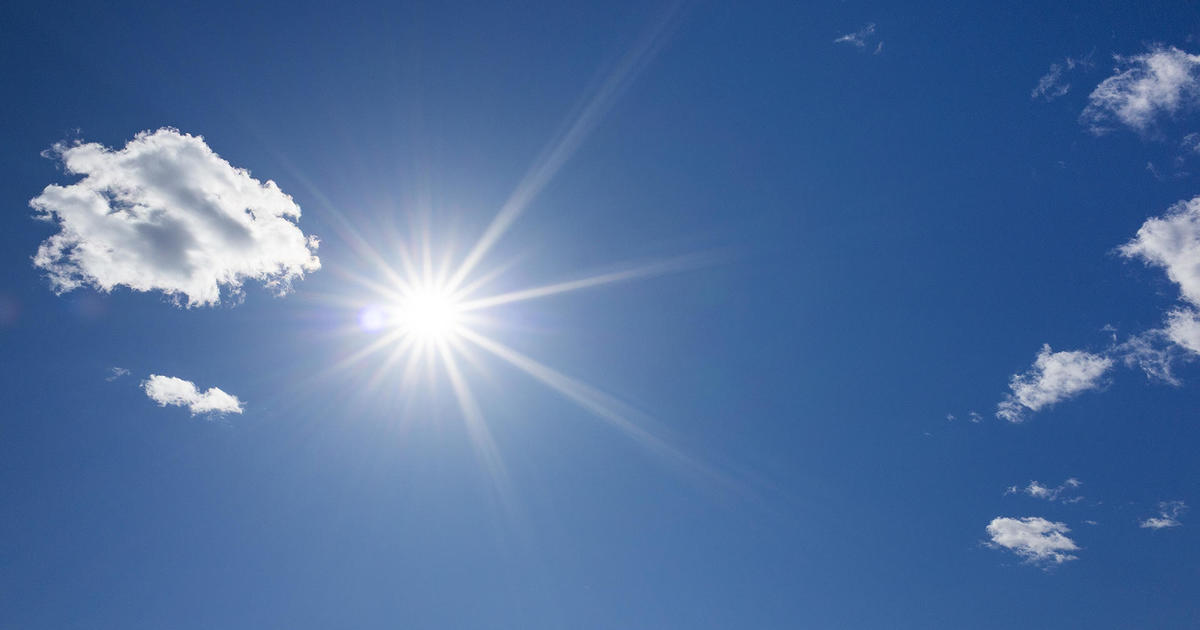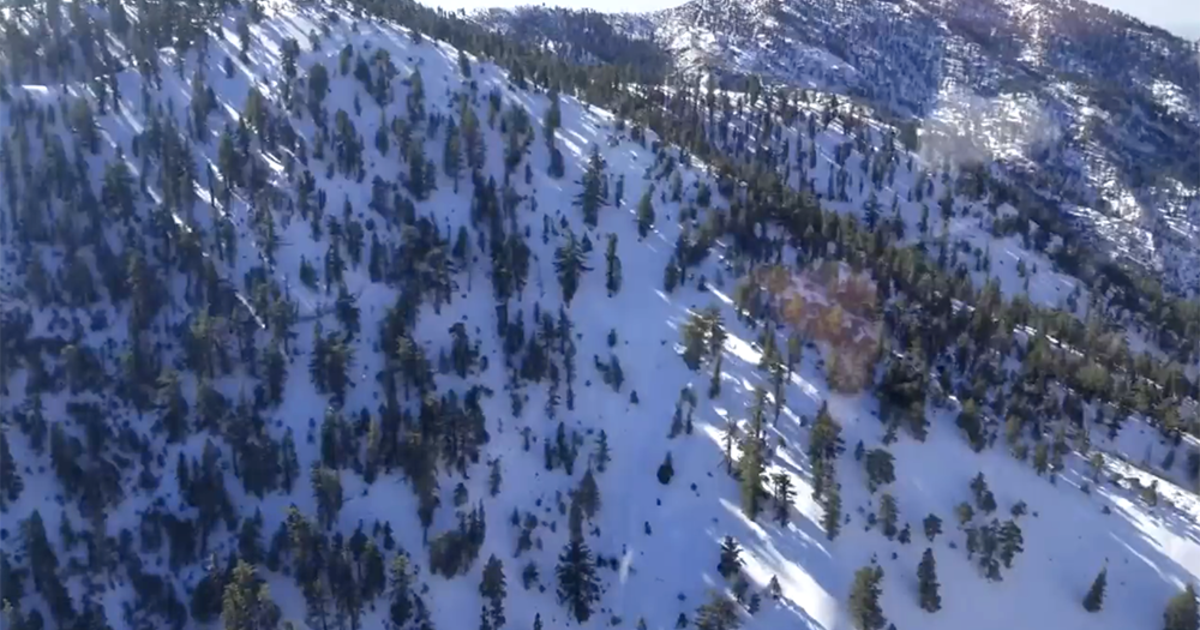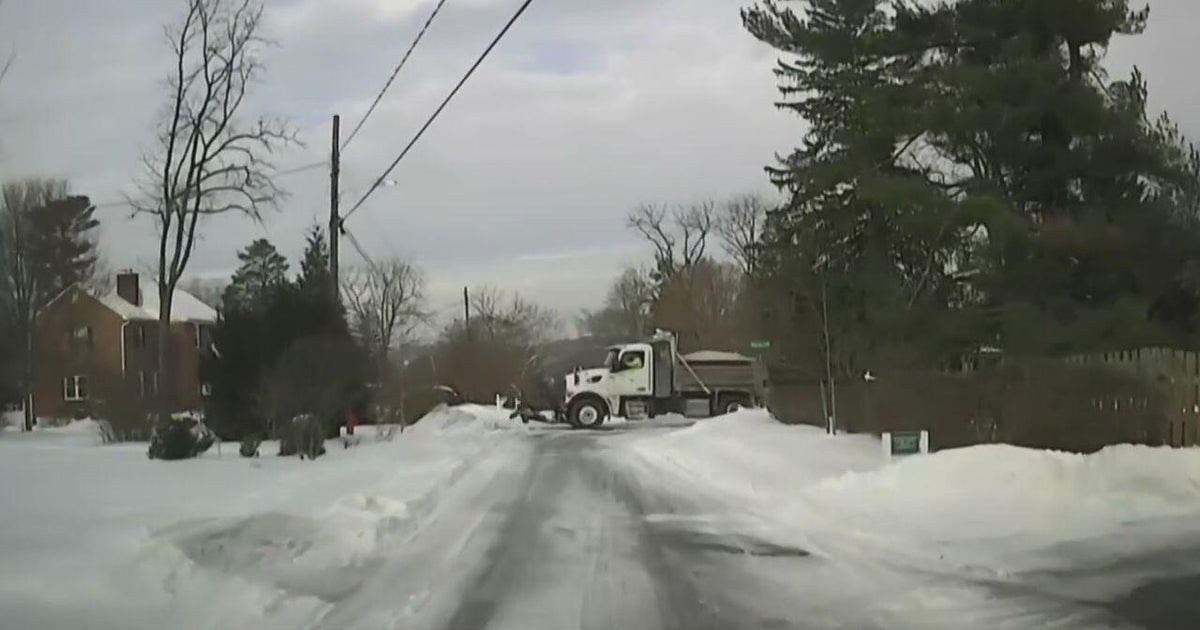Fall drought in Massachusetts could mean less snow this winter. Here's how
BOSTON - Most of Massachusetts is abnormally dry, according to new data released Thursday. There's no rain in the current weather forecast and the drought could be a sign that there might be significantly less snow coming this winter.
Massachusetts drought
For the month of October, Boston is more than two inches below the average to date. The last measurable rainfall came eleven days ago.
That pales in comparison thought to the 29-day streak that ended just last month. (August 21 to September 19)
To date, this meteorological fall (which started on September 1), has been the third driest on record in Worcester and fifth driest on record in Boston.
It has only rained eight times in the last 64 days the Boston area!
Granted, this comes as good news to most of us that enjoy being outdoors in the fall here in New England, particularly after a year like 2023 when it seemed to rain just about every weekend.
Should we be concerned? How impactful is a drought this time of year?
The best way to measure our current drought status is with the U.S. Drought Monitor which comes out each Thursday morning.
As expected, the area of "moderate drought" nearly doubled over the last week in Massachusetts jumping from about 17% last week to more than 35% this week.
When will it rain again?
Even more concerning, there is no immediate pattern change expected. There is a slight chance of a few sprinkles this Saturday but our next shot at any significant rain likely won't come until early November.
Thankfully, our current drought is considered "short term." In fact, for the year, Boston still has a slight surplus thanks to a very wet January and March.
The bottom line is the overall concern level right now is fairly low. Growing season is over, so the impact to farmers, for now, will be minimal. Water shortages are also not a top of mind issue this time of year since most people have stopped using irrigation.
If you have planted grass seed in the last few weeks you will certainly need to keep those areas watered for now. Also, be sure to keep the ground moist around any newly planted shrubs to ensure proper root growth and protection.
Dry fall leads to dry winter?
So does a dry fall season mean anything for the winter season that follows? Yes.
In fact, the data shows that in nearly every case, the pattern continues into the winter.
If we take the ten driest fall seasons on record in Boston, eight of them had below average snowfalls that winter. In many cases it was WELL below the average.
Boston averages about 49 inches of snow in a winter season. The average for those 10 winters was about 28 inches of snow.
It's worth noting that most of the data is old, from the early and mid-1900s and obviously the state of our planet and atmosphere is much different now than it was then.
Also, if November should end up being a wet month, that could also flip the script on winter. Stay tuned!
